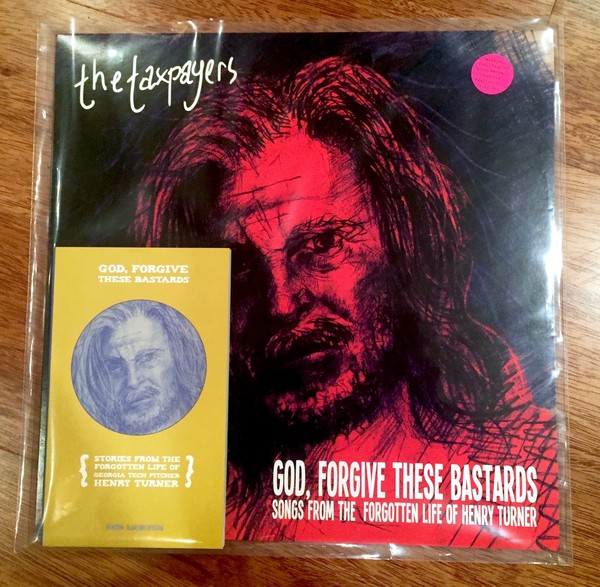Book Review: God, Forgive these Bastards
 We ask each of our interns to review one of our books before they go. Natalie heads home to Australia next week, and left us with these thoughts on our first and (until April 2016) only work of fiction…or is it fiction? To tell the truth, we’re not totally sure.
We ask each of our interns to review one of our books before they go. Natalie heads home to Australia next week, and left us with these thoughts on our first and (until April 2016) only work of fiction…or is it fiction? To tell the truth, we’re not totally sure.
I originally overlooked this book when I read the title on its spine—I was feeling a little lazy that day and so I was looking for something that had a more ‘familiar’ title. But after flicking through a whole lot of DIY books, I began to crave something with a solid narrative, and that’s when I reached for God, Forgive These Bastards: Stories from the Forgotten Life of Georgia Tech Pitcher Henry Turner.
Being from Australia, I don’t really know much about baseball or anybody named Henry Turner. After I read this book, I honestly don’t know what I learnt from it at all. I realised quite quickly that these stories weren’t really all that much about baseball. In fact, to me at least, it felt like they were more about America and the strange things that can happen to you here.
God, Forgive These Bastards begins with Rob Morton meeting Henry for the first time, at a bus stop in Portland, Oregon. Beginning in an ordinary biographical kind-of-way, the stories then take you into a direction that’s a little less predictable. Kind of like when you accidentally catch the wrong bus and end up in an unfamiliar neighbourhood. Some of Henry’s stories are violent and sad, and it was hard to know if they were true or not—and while I was reading them, I really didn’t want to know the truth.
The whole concept of the book reminds me of when I ride the buses and see all of the other regular commuters. I try and imagine stories about what their lives were like before they ended up riding the same buses as I do—and unless they approach me to tell a story about themselves, I’ve usually been too shy to strike up a conversation.
I guess what I’m trying to say is, even though I’m sure that there are so many different things that you could take away from these stories, I feel like this book helped me examine how we perceive and contribute to our own ideas of ‘culture’. Like the way it feels as though we’re too absorbed in our own lives, and just too afraid of each other to talk and trade stories.
I did find that a couple parts of the book were hard to believe because it felt like there were missing details that I would’ve liked to know; nevertheless it was a good read. My favourite line from the book was in my least favourite chapter—my least favourite because all of the things that happen are just so dark and horrible. Henry explains how he is feeling at a time when he feels incredibly vulnerable: ‘It was the kind of panic that I imagine the devil would make you feel if he walked over to the bed where you slept, lied down next to you, and wrapped his arms around your body.’ And I like this line the best because it describes exactly how I felt reading that chapter.
Morton also uses this book to talk about how down-and-out people like Henry are left unforgiven and hated. I don’t know if he’s really saying that we should forgive people for making us feel intense pain or for committing horrible crimes—it does come across that way—but Morton does explain that people shouldn’t be defined by the bad things that they’ve done, and I suppose that just listening to others to learn from their mistakes can be a good thing to do.
Henry’s stories are told with an honest voice, which makes the unbelievable, believable. These stories are crazy, and mean, and probably everything that you don’t want to imagine your life to ever be. God, Forgive These Bastards is definitely a book that I would read again, and the soundtrack by Mortons’s band, The Taxpayers, is equally as thrilling.
If you want to read the book while playing the soundtrack on vinyl, we’re doing another pressing, and it’ll be available again in 2016!